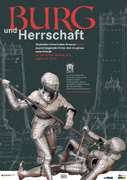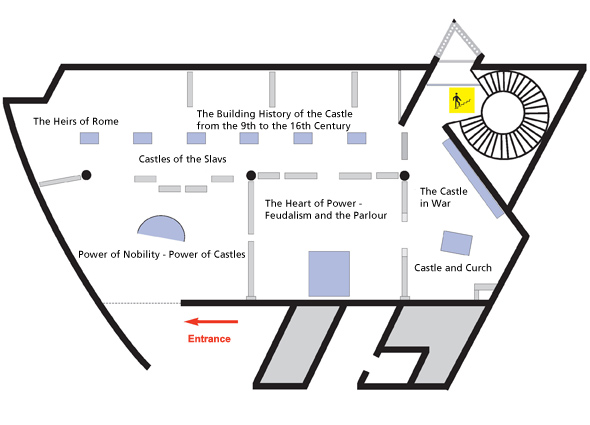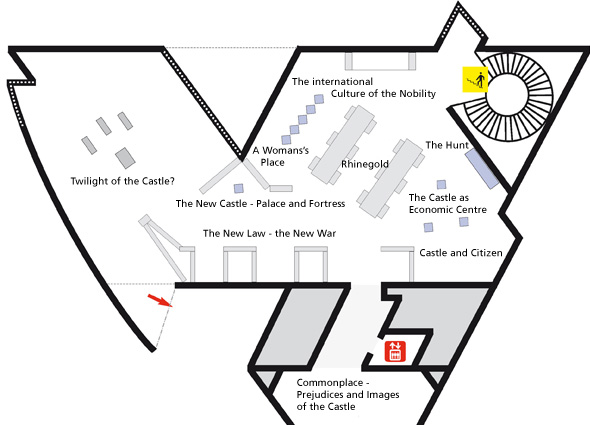



Until the end of the Holy Roman Empire the nobility made up the politically most important group of people. Not only did kings and princes stem from this group, but also most of their advisers and acolytes. The nobility did not form a unified class. At the bottom end there were the "ministeriales", vassals who rose above their birth, but were not free. Together with the knights of the lower nobility they formed the core group and bearers of an ideal; they shared the chivalric virtues with the counts and dukes. Mastery of the horse, skill with weapons and observance of a code of honour among peers united the houses for generations and across language barriers.

The nobles ruled over their lands and properties, their followers and servants, on behalf of an ecclesiastical or secular prince, but also of their own power.
The mindset of the Middle Ages saw in the nobility the defender of the proper order. The centre of power was the noble's solid house, the castle with its taxable villages and farms.


